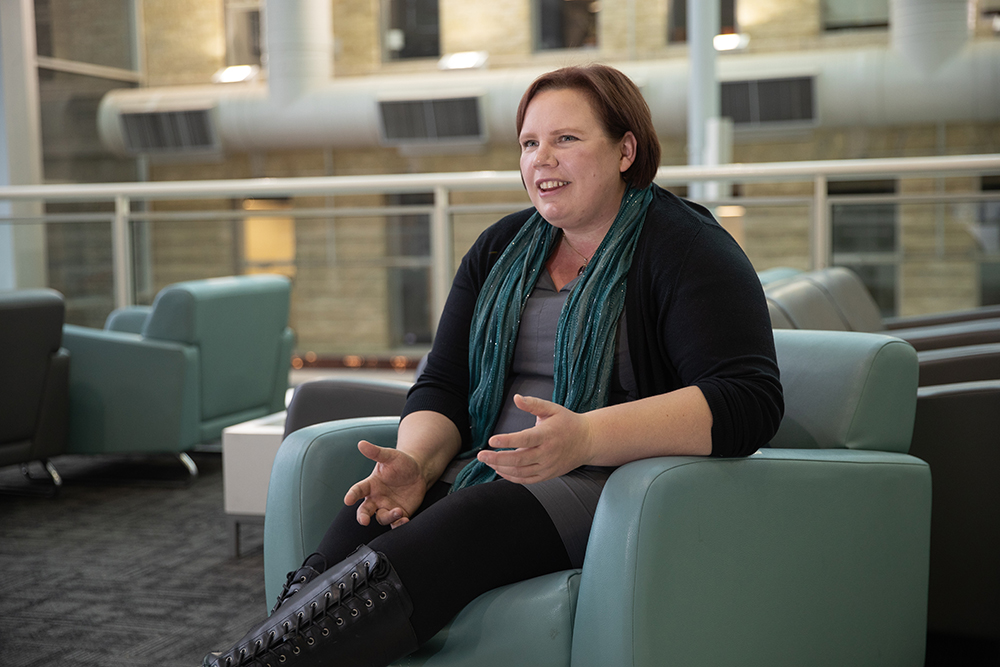
Growing up in Regina, Dr. Lisa Engel had no aspirations for a PhD. But that changed after she started working as an occupational therapist at a regional hospital on Vancouver Island in 2007.
“I always wanted to practise clinically, but nagging questions kept coming up at the clinic,” she remembers. “I’d see some colleagues go home at night and leave those questions behind, but I couldn’t.”
Finally, a question about a patient’s ability to manage personal finances changed her career.
“I realized that we just didn’t have enough information on this. So I decided to do a PhD.”
After earning her doctorate at the University of Toronto, Engel moved to Winnipeg with her family in 2019 to join the College of Rehabilitation Sciences as an assistant professor.
Today, her research is focused on the financial capability and well-being of adults living with health conditions or disabilities.
“I believe I’m the only person researching this in Canada,” she says.
In 2020, she received more than $380,000 from the Government of Canada’s Social Development Partnerships Program (disability component) for a project with the Manitoba Brain Injury Association.
The project consists of four interrelated studies, including focus groups and a “photovoice” study that has participants who live with brain injury documenting their financial activities using digital cameras.
The photos will be used in a gallery that could persuade financial institutions and other groups to address how to help those with an “invisible disability.”
“One man took a picture of his bank and explained how he’s not able to function with the bright lights and the noise,” Engel says.
“He could have all the skills in the world, but the environment is preventing him from doing his banking.”
The focus groups have generated strong, practical ideas from participants. One is a double-sided wallet card that people with brain injury could carry to help them navigate financial situations.
“If they are not knowing what to say and in a trusting situation, the card could provide ideas to staff at a financial institution on how to work with them better. On the other side of the card would be reminders to themselves.
“It’s an amazing idea that came directly from talking to people living with brain injury.”
Engel says interest in financial wellbeing for people with disabilities is growing, in Canada and internationally. Canada’s financial literacy strategy was updated last year and now mentions people living with disabilities.
“I’ve had contact from researchers and groups across Canada, the U.S. and Australia to collaborate,” she says.
While about 80 per cent of Engel’s research focuses on financial well-being, she recently became co-lead on a national project looking at the effects of the pandemic on brain injury associations.
Funded by the Canadian Institutes of Health Research, the project aims to design a pandemic preparedness resource for people with brain injury in future pandemics or further waves of COVID-19.
“These associations have built a lot of amazing resources since the pandemic started,” she says.
“But there’s often a high staff turnover with these community groups and funding is precarious, so we want to make sure this information isn’t lost.”
BY ALAN MACKENZIE
